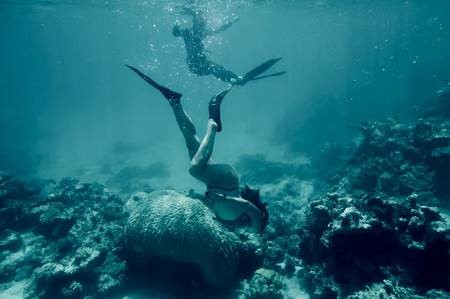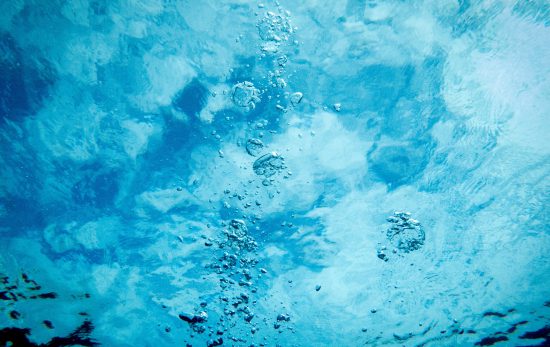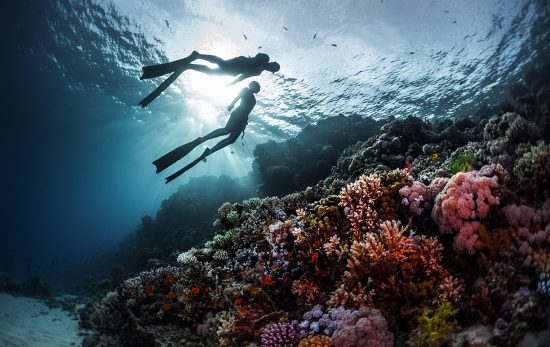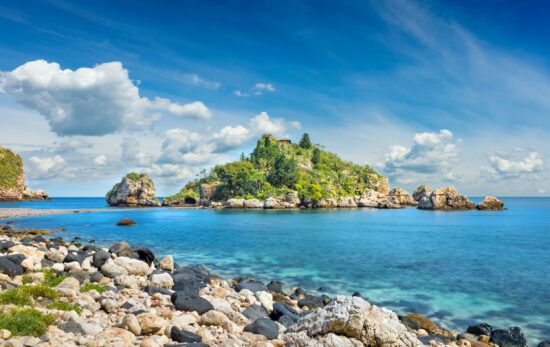If you spend enough time underwater, either freediving or scuba diving, then you’ll get to experience some incredible and life-changing things. But aside from the obvious difference: tank vs no tank, what makes a freediving experience different from that experienced through scuba diving?
Let’s find out.
Observation
Freedivers, as their name suggests, can move more freely underwater than scuba divers. Without a tank, freedivers can move quickly to keep up with fast-moving fish; and breath holding means there aren’t any bubbles to scare off marine life. Making it easier to swim through a shoal of glassfish without it scattering, creep up on a cuttlefish and go eye-to-eye with a whale.
Scuba divers do have the advantage of being able to stay longer underwater to observe marine life around them. Plus, the length of time scubas can be underwater is also of benefit to the vibrancy of what they see.
As divers descend, light levels drop and the eye responds by expanding the iris to let more light in. In freediving, you’re often not down long enough for the iris to adapt like it does in scuba, so the same reef can look very different to both type of diver.
Exploration
https://www.instagram.com/p/BpHHYhxAlSy/?taken-by=paditv
Wrecks and underwater architecture like caves and canyons can be equally fun to freedive or scuba dive, but perhaps scuba has the edge here.
It gives you a greater range of possibilities for exploration in terms of depth and time. You can stay longer, cover greater distance, and go deeper for longer with less risk in terms of overhead environments.
That being said, freedivers are more nimble than scuba divers. Without concern for saw tooth profiles (the ascent technique to protect from decompression sickness), freedivers can more easily weave in and out of caves and have the flexibility to nip up and down over the reef.
As an added bonus, freediver’s need only to do a beginner’s freediver course and to have a good buddy with them to explore underwater architecture. Whereas, in most cases, scuba divers are required to do a speciality course to do the same activity.
Sociability
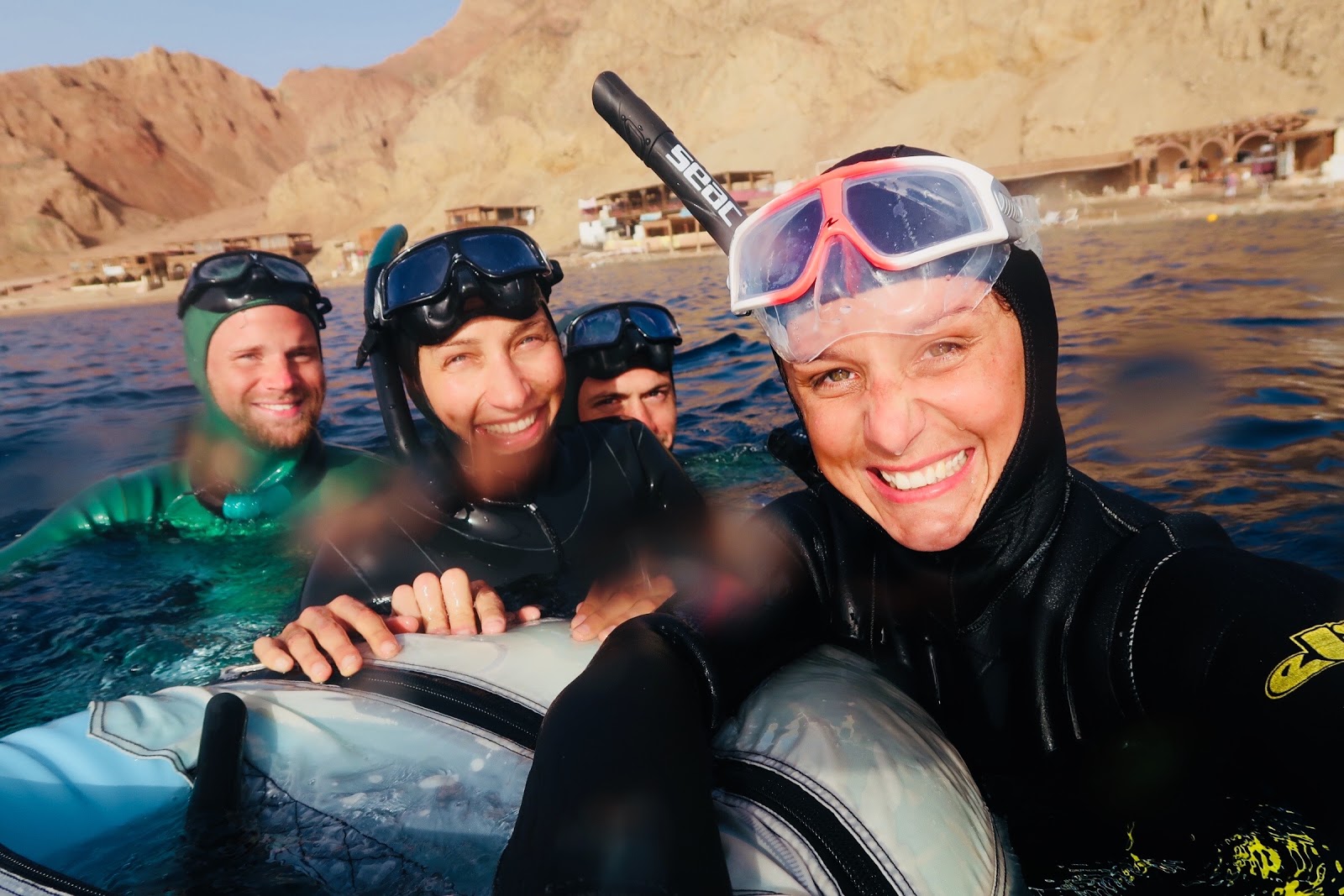
Freedivers must always dive with a buddy, which is done for safety reasons, but this also makes for a more socially rewarding experience than what’s possible scuba diving.
Whether line diving, or recreational diving, freedivers are only underwater for a few minutes at a time and then resurface to talk to their buddy (or buddies) about what they’ve experienced. Freedivers are very open and willing to advise and support each other, providing tips on technique or things to try if a dive didn’t go as well as one would like.
Whereas in scuba diving, the length of time spent underwater is far greater and is generally consistent across divers. Because of this they often have the same experience and there aren’t the same opportunities to share and talk about the dive like there is in freediving.
Awareness
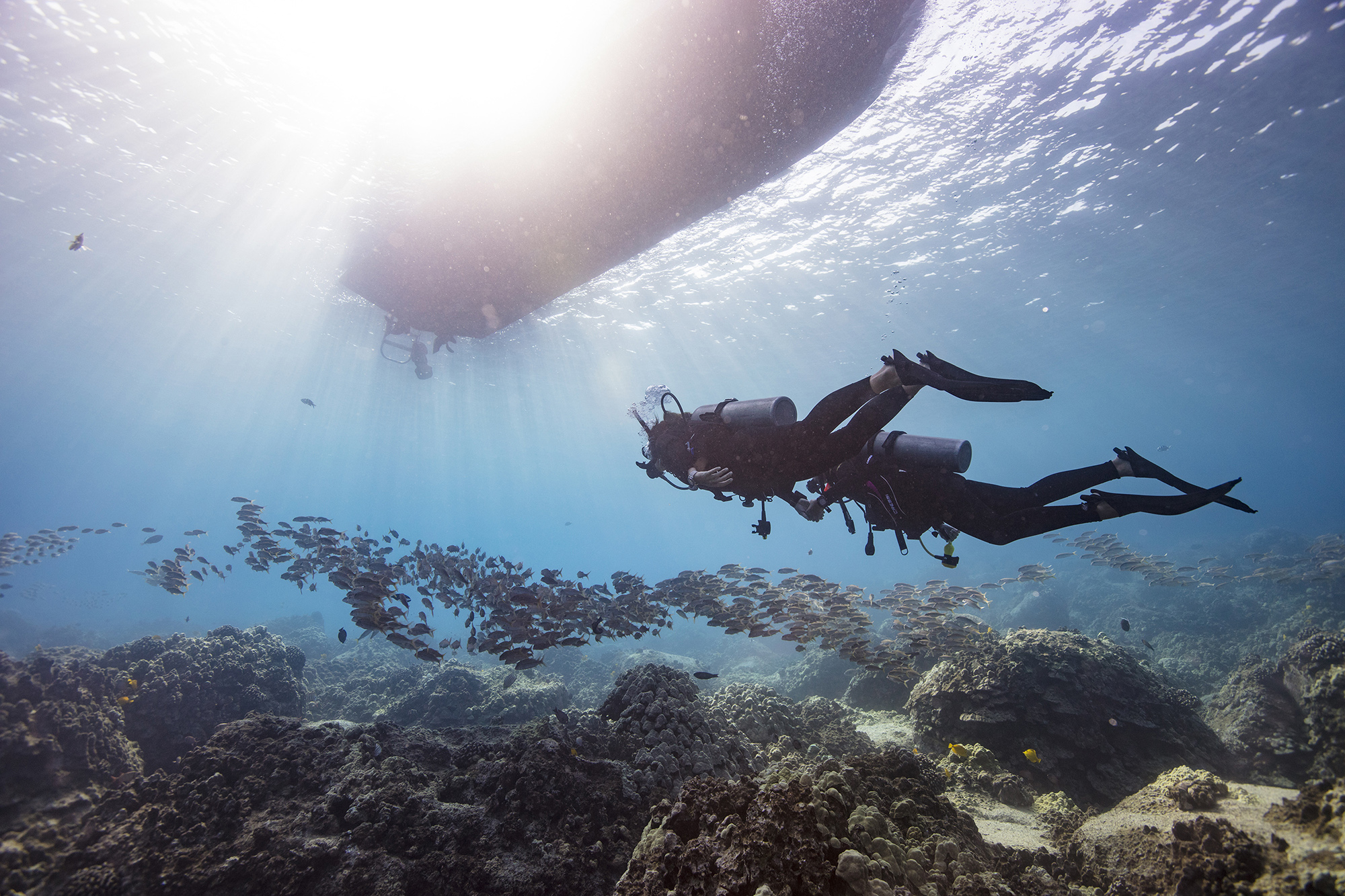
There’s a quote that goes “if you want to explore your outer world, underwater, wear a tank. If you want to explore your inner world, underwater, don’t” (anonymous).
It’s an insightful way to describe the biggest difference between a freediving experience versus that of scuba diving, which is the awareness of self underwater.
In scuba, awareness is predominantly outwardly focused – what can be seen, and monitored for depth, time and duration. The mind is active and in a constant state of external stimulation, reacting to what’s going on around it.
Whereas in freediving, awareness is more inwardly focused – what can be felt, and experienced for comfort, enjoyability and relaxation. The mind is reflective, analysing and reacting to the body’s own responses to gauge what’s possible.
Freediving then, unlike scuba, is different in that you’re not necessarily diving to see things, but rather, you are diving to discover and improve yourself.
Accomplishment
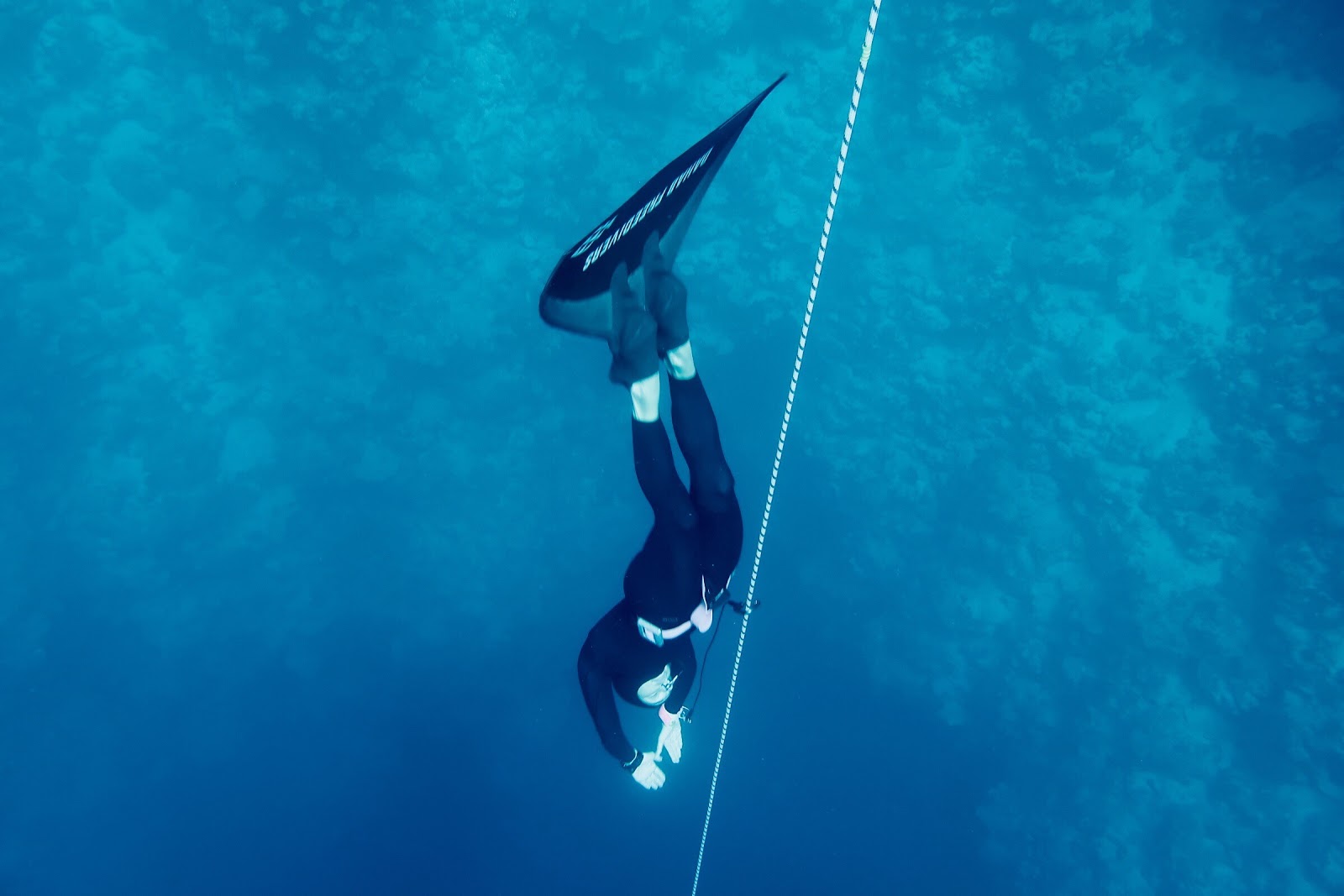
Following on from above, we should talk about the challenge of freediving versus scuba diving, which makes a difference to the sense of accomplishment you get from doing it.
It could be said, that once you master the skills needed to scuba dive then the job is done. It’s simply then a matter of practising those requisites and enjoying the result of the effort – getting to experiencing dive sites, and explore and observe the underwater environment.
In contrast freedivers have endless ways to improve and enhance their underwater experience, which makes for a more interesting challenge. Whether it’s working on technique, mindset, relaxation, or awareness, freedivers must challenge themselves to better understand themselves as much as their environment to progress.
There is a big competitive side to freediving, but it’s as much, if not more, about competing with yourself as it is about competing against others. Freedivers often strive for personal bests (PBs) in depth, time and distance covered, which require a considerable amount of dedication, perseverance and determination to achieve. Making the practise of freediving potentially more rewarding overall.
Declaration: As a non-scuba diver myself, I reached out to a number of scuba diving freedivers for their insight into the differences between the two types of diving. It was remarkable how consistent they were in their insights and the write up is based on the information they gave me, alongside my own experience as a freediver. Thanks to them for sharing!
Author Bio
S.J’s journey into freediving began in Utila, Honduras in 2017. Since then she’s been freediving in Canada, Dahab, Tenerife and the U.K and practices freediving for all dynamic and depth disciplines. Follow her freediving adventures on Instagram and for freediving, or water-related copywriting and marketing visit her website The Content Marketing Club.

